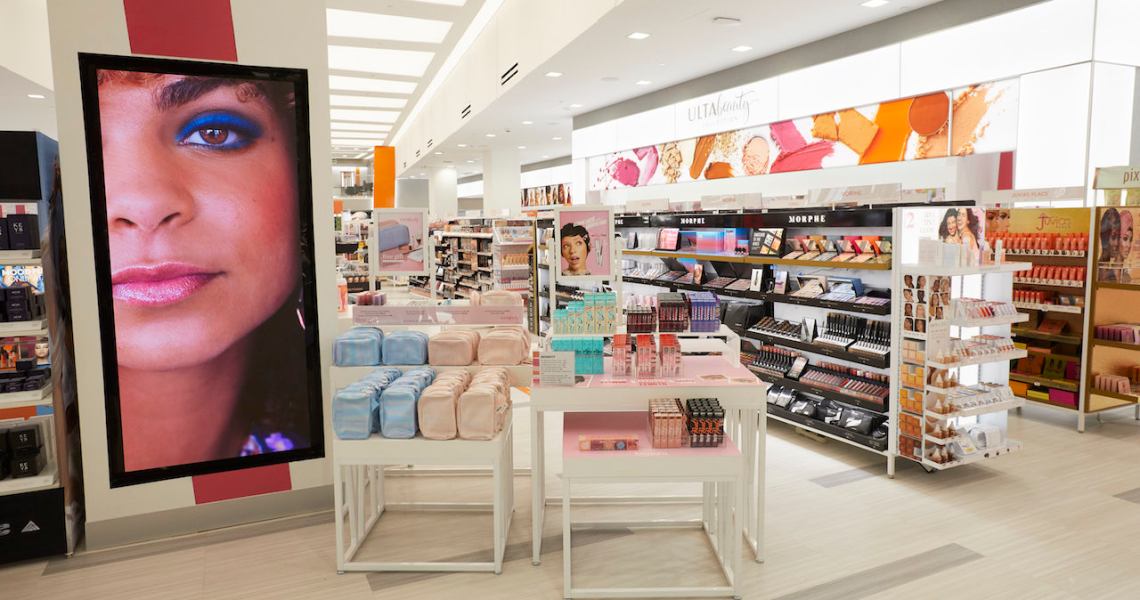Ulta Beauty revealed during its fourth-quarter and 2022 year-end earnings that for the first time in its 33-year history, annual revenue surpassed $10 billion, with annual net income exceeding $1 billion.
Net sales for the fourth quarter increased 18.2% to $3.2 billion, compared to $2.7 billion in fiscal year 2021. Annual net sales increased 18.3% to $10.2 billion, compared to $8.6 billion in fiscal year 2021. This was primarily owed to the favorable impact of the continued resilience of the beauty category, as well as retail price increases, the impact of new brands and product launches, increased social occasions, and fewer Covid-19 limitations, compared to fiscal year 2021. Sales grew by double digits in all major categories, including makeup, hair care, skin care and fragrance. Shoppers especially invested in serums, moisturizers, acne treatments and holiday gift sets.
In an interview with Glossy, Dave Kimbell, CEO of Ulta, added that sales growth at the retailer has been seen across all beauty price points, ranging from mass to luxury. Ulta is expanding its luxury focus with brands like Chanel, Hourglass, Dior and Natasha Denona, he said. Last week, the company launched its official luxury category on Ulta.com, and it’s rolling out the expanded luxury lineup to 200 store locations. Additionally, Ulta’s experienced sales growth in all U.S. geographies, through its stores and shop-in-shop locations at Target. Ulta Beauty opened 47 new stores in fiscal year 2022, including in new cities within New York, Arizona, Massachusetts and Oklahoma. At the end of the fourth quarter of fiscal 2022, the company operated 1,355 stores and 350 Target shop-in-shops.
“Our business model has been proven now for over 33 years. And we believe there’s a lot of opportunity to continue to innovate on that model,” said Kimbell.
Kimbell said there are four pillars contributing to the strength of the Ulta Beauty business model: product assortment, in-store services and event experiences, a strong e-commerce channel, and the Target partnership.
Meanwhile, Sephora’s parent company, LVMH, experienced recent revenue growth of 23% to $82.6 billion for 2022, with a “record performance” from Sephora boosting overall sales. Despite the mixed signals from the economy and the recent earnings, Ulta Beauty has not seen a trade-down from luxury or prestige toward less expensive mass products. On Thursday’s earnings call, Kimbell listed Drunk Elephant, The Ordinary, Hero Cosmetics and dermatology-based brands like La Roche-Posay as top performers.
Ulta Beauty plans to roll out a new website that makes shopping online simpler and more engaging. That will include expanding its virtual try-on tool and amplifying the live-shopping digital experience. Ulta Beauty added 3 million reward members in 2022, surpassing 40.2 million.
“When we get a store-only shopper to start shopping in both stores and online, their spend with us increases by about 2.5 times. And they end up shopping more frequently in stores, not less frequently,” said Kimbell. “We’re very proud of what we’ve delivered … and we’re optimistic about the path ahead and the future for Ulta Beauty.”




